November 2 stands as one of history’s most eventful days, witnessing the rise and fall of empires, groundbreaking discoveries, and moments that shaped our modern world across centuries of human achievement.
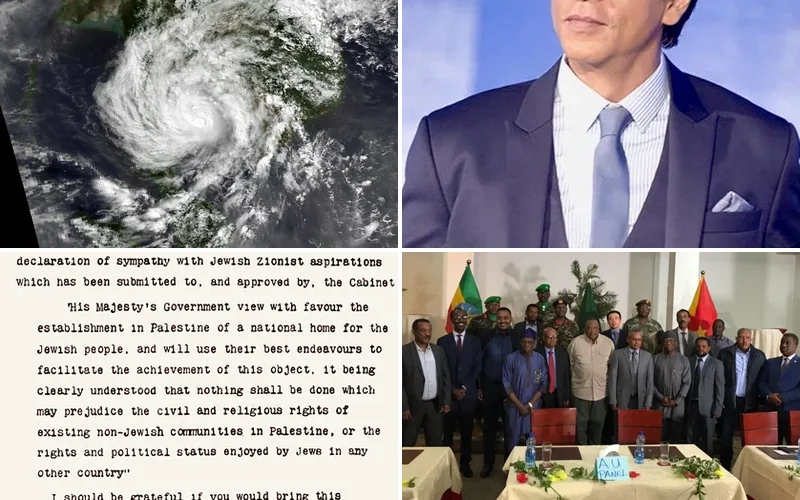
Politics and Government Events on November 2
1917 – Balfour Declaration Proclaims British Support for Jewish Homeland

The British government issued the historic Balfour Declaration, expressing support for establishing a Jewish national home in Palestine. Foreign Secretary Arthur Balfour crafted this pivotal document that would reshape Middle Eastern geopolitics for generations.
The declaration carefully balanced Jewish aspirations with protections for existing non-Jewish communities. This diplomatic milestone ignited decades of complex negotiations and territorial disputes that continue influencing international relations today.
1956 – Khrushchev Selects New Hungarian Leader During Revolution
Soviet Premier Nikita Khrushchev convened emergency meetings with Communist leaders to address the Hungarian Revolution crisis. Yugoslav leader Josip Broz Tito advised selecting János Kádár as Hungary’s next leader during these crucial consultations.
The secretive diplomatic maneuvering demonstrated Soviet determination to maintain Eastern European control. Khrushchev’s choice of Kádár would prove instrumental in suppressing the Hungarian uprising and restoring Communist authority.
1964 – Saudi King Saud Deposed in Family Coup
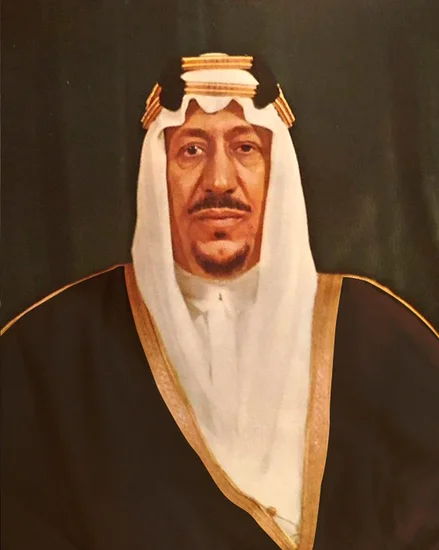
King Saud of Saudi Arabia faced removal from power through a carefully orchestrated family coup. His half-brother Faisal assumed the throne, marking a significant shift in Saudi leadership and regional influence.
The internal power struggle reflected growing tensions over modernization and oil wealth distribution. Faisal’s ascension would usher in an era of economic development and increased international prominence for the kingdom.
1960 – South Vietnamese President Assassinated Following Military Coup
President Ngô Đình Diệm of South Vietnam was assassinated after a successful military coup overthrew his government. The dramatic political upheaval shocked the international community and destabilized the region during the Vietnam War.
American officials had grown increasingly concerned about Diệm’s authoritarian rule and religious persecution. His violent removal marked a turning point in Vietnamese politics and deepened United States involvement in Southeast Asian affairs.
2022 – Ethiopian Government Signs Peace Agreement Ending Tigray War
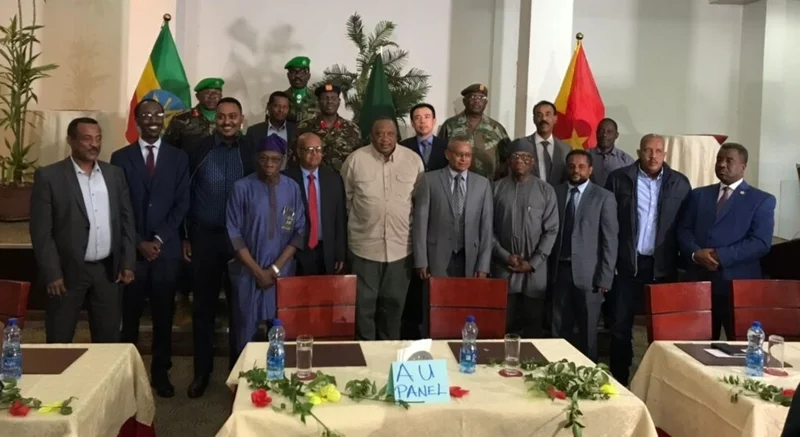
The Ethiopian government and Tigray People’s Liberation Front signed a comprehensive peace agreement, officially ending the devastating Tigray War. International mediators facilitated the negotiations that brought relief to millions of affected civilians.
The conflict had caused widespread humanitarian suffering and regional instability for over two years. This diplomatic breakthrough offered hope for reconstruction efforts and reconciliation between the warring parties.
Military and Naval History on November 2
1912 – Bulgaria Defeats Ottoman Empire at Battle of Lule Burgas
Bulgarian forces achieved a decisive victory over the Ottoman Empire at the Battle of Lule Burgas, the bloodiest engagement of the First Balkan War. This triumph opened the path to Constantinople and demonstrated Bulgaria’s military capabilities.
The battle’s outcome dramatically shifted the balance of power in southeastern Europe. Ottoman forces suffered massive casualties, accelerating the empire’s decline and Bulgaria’s emergence as a regional power.
1914 – Russian Empire Declares War on Ottoman Empire
The Russian Empire formally declared war on the Ottoman Empire, expanding World War I into new theaters of conflict. This declaration immediately closed the strategic Dardanelles strait to international shipping.
The war declaration opened the Caucasus front and threatened Ottoman territories in eastern Anatolia. Russian military planners anticipated quick victories against their traditional southern rival.
1940 – Battle of Elaia–Kalamas Begins Between Greeks and Italians
Greek and Italian forces clashed at the Battle of Elaia–Kalamas, marking the first day of sustained combat on the Albanian front. Greek defenders demonstrated unexpected resilience against the Italian invasion.
The battle showcased Greek military determination and tactical superiority over Italian forces. This engagement would prove instrumental in halting Mussolini’s ambitious Mediterranean expansion plans.
1951 – Canadian Regiment Defends Against Chinese Battalion in Korea
A single platoon of The Royal Canadian Regiment heroically defended a vital position against a full Chinese battalion at the Battle of Song-gok Spur. The outnumbered Canadian forces maintained their position throughout the night.
The engagement demonstrated exceptional courage and tactical skill under overwhelming odds. Canadian military leadership praised the platoon’s determination in preventing Chinese forces from capturing strategic terrain.
Science and Discovery Milestones on November 2
1988 – Morris Worm Becomes First Major Internet Computer Worm
The Morris worm launched from MIT, becoming the first Internet-distributed computer worm to capture significant mainstream media attention. This malicious program infected thousands of computers across university and government networks.
The incident exposed critical security vulnerabilities in early Internet infrastructure and prompted widespread cybersecurity reforms. Robert Morris Jr.’s creation highlighted the urgent need for comprehensive network protection protocols.
1947 – Howard Hughes Flies Spruce Goose on Maiden Flight

Designer Howard Hughes performed the maiden and only flight of the Hughes H-4 Hercules, nicknamed the “Spruce Goose,” in California. The massive aircraft remained the largest fixed-wing aircraft ever built for decades.
The experimental flight lasted only minutes but demonstrated the feasibility of enormous wooden aircraft construction. Hughes’s achievement represented a remarkable engineering accomplishment despite limited practical applications.
2000 – Expedition 1 Begins Continuous Human Presence in Space

Expedition 1 crew members arrived at the International Space Station for the first long-duration stay aboard the orbiting laboratory. This historic mission established an uninterrupted human presence in space that continues today.
The achievement marked humanity’s transition from visiting space to permanently inhabiting orbital facilities. International cooperation made this milestone possible through combined technological expertise and resources.
Cultural and Arts Events on November 2
1920 – KDKA Begins Broadcasting as First Commercial Radio Station

Pittsburgh’s KDKA started broadcasting as America’s first commercial radio station, inaugurating the radio age with coverage of the 1920 presidential election. This revolutionary medium would transform entertainment and news distribution forever.
The station’s first broadcast reached thousands of listeners across the Pennsylvania region. Radio technology rapidly expanded nationwide, creating new opportunities for mass communication and cultural exchange.
1936 – BBC Television Service Launches World’s First Regular High-Definition Service
The BBC Television Service began broadcasting as the world’s first regular high-definition television service, offering programming with at least 200 lines of resolution. This groundbreaking service would later become BBC1.
The technological achievement established Britain as a pioneer in television broadcasting and entertainment. Regular programming schedules created new possibilities for visual storytelling and mass entertainment.
1982 – Channel 4 Begins Broadcasting in Britain
Channel 4 launched as Britain’s fourth television channel, funded through commercial activities while maintaining public service broadcasting principles. The channel introduced innovative programming and alternative viewpoints to British television.
Channel 4’s unique funding model allowed greater creative freedom and risk-taking in program development. The broadcaster quickly gained recognition for supporting independent film production and diverse cultural programming.
1964 – Penguin Books Wins Lady Chatterley’s Lover Obscenity Trial
Penguin Books was found not guilty of obscenity charges in the landmark trial R v Penguin Books Ltd regarding D.H. Lawrence’s “Lady Chatterley’s Lover.” This legal victory transformed publishing standards and literary censorship.
The trial’s outcome established important precedents for artistic freedom and literary merit in British law. Publishers gained greater confidence in releasing controversial works of recognized literary value.
Religious and Social Events on November 2
1965 – Norman Morrison Self-Immolates to Protest Vietnam War
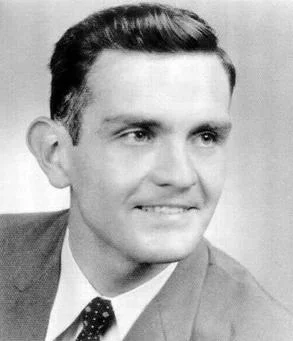
Norman Morrison, a 31-year-old Quaker, set himself on fire in front of the Pentagon to protest the use of napalm in Vietnam. His dramatic sacrifice shocked the nation and amplified anti-war sentiment.
Morrison’s actions reflected growing moral outrage over American military tactics in Southeast Asia. His protest inspired other peace activists and contributed to mounting pressure for policy changes.
1983 – Ronald Reagan Signs Bill Creating Martin Luther King Jr. Day
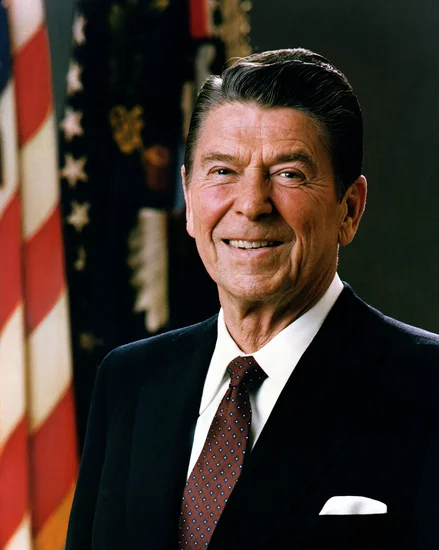
President Ronald Reagan signed legislation establishing Martin Luther King Jr. Day as a federal holiday, honoring the civil rights leader’s legacy. The bill’s passage culminated years of advocacy and congressional debate.
The holiday’s creation represented a significant milestone in recognizing African American contributions to American society. King’s message of nonviolent resistance and racial equality gained permanent federal recognition.
1917 – Military Revolutionary Committee Holds First Meeting in Petrograd
The Military Revolutionary Committee of the Petrograd Soviet convened its inaugural meeting to prepare for the Russian Revolution. This secretive group would orchestrate the Bolshevik seizure of power.
The committee’s formation marked a crucial step toward overthrowing the Provisional Government and establishing Communist rule. Lenin’s supporters used this organization to coordinate revolutionary activities across the capital.
Business and Economic Events on November 2
1990 – British Sky Broadcasting Formed Through Merger
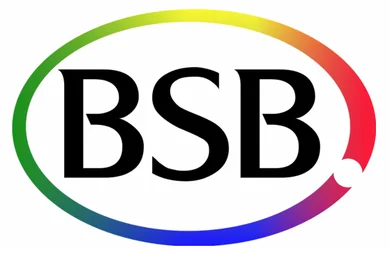
British Satellite Broadcasting and Sky Television merged to form BSkyB after both companies sustained massive financial losses. The consolidation created Britain’s dominant satellite television provider.
The merger resolved destructive competition between rival satellite broadcasting services and established a sustainable business model. BSkyB’s formation revolutionized British television through expanded channel offerings and premium content.
1968 – Cuban Adjustment Act Comes into Force
The Cuban Adjustment Act took effect, allowing 123,000 Cuban refugees the opportunity to apply for permanent residence in the United States. This legislation provided legal pathways for Cuban immigrants fleeing Communist rule.
The act reflected America’s Cold War commitment to supporting refugees from Communist nations. Cuban immigrants utilized these provisions to establish new lives and communities throughout the United States.
Transportation and Infrastructure on November 2
1959 – First Section of M1 Motorway Opens in Britain
The first section of Britain’s M1 motorway opened between junctions 5 and 18, along with the M10 and M45 motorways. This represented Britain’s first inter-urban motorway system.
The motorway’s opening revolutionized British transportation and enabled rapid movement between major cities. Modern highway infrastructure supported economic growth and transformed travel patterns throughout the country.
1997 – Tropical Storm Linda Devastates Vietnam’s Mekong Delta
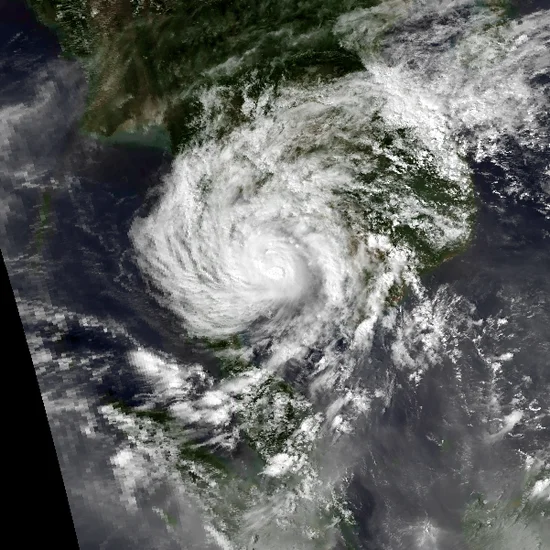
Tropical Storm Linda made landfall in Vietnam’s Mekong Delta, causing catastrophic flooding and more than 3,000 deaths. The storm represented one of the deadliest natural disasters in Vietnamese history.
The massive storm surge overwhelmed coastal defenses and inundated vast agricultural areas. International relief efforts mobilized to provide emergency assistance to affected communities.
1988 – LOT Polish Airlines Flight 703 Crashes in Poland
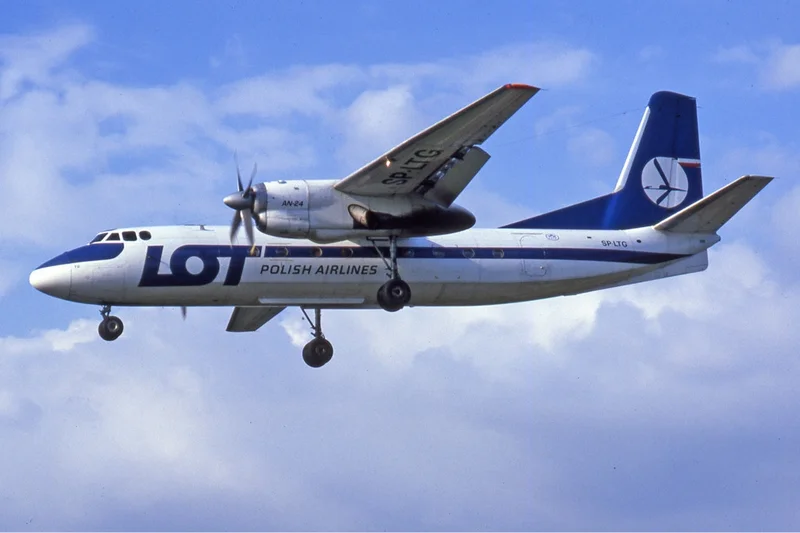
LOT Polish Airlines Flight 703 crashed in Białobrzegi, Podkarpackie Voivodeship, Poland, killing one person and injuring several others. The accident highlighted ongoing aviation safety concerns in Eastern Europe.
Investigation revealed mechanical failures that contributed to the crash and emergency landing attempt. The incident prompted enhanced safety protocols and aircraft maintenance procedures.
Sports and Recreation on November 2
2016 – Chicago Cubs End 108-Year Championship Drought
The Chicago Cubs defeated the Cleveland Indians to win the World Series, ending Major League Baseball’s longest championship drought at 108 years. The victory culminated a historic season and thrilled Cubs fans worldwide.
The championship broke the “Curse of the Billy Goat” and fulfilled generations of Cubs supporters’ dreams. The team’s triumph represented one of the most celebrated moments in baseball history.
2008 – Lewis Hamilton Wins First Formula One Championship

Lewis Hamilton secured his maiden Formula One Drivers’ Championship by one point ahead of Felipe Massa at the Brazilian Grand Prix. Hamilton’s dramatic fifth-place finish on the final lap sealed his victory.
The championship battle went down to the final moments when Hamilton passed Timo Glock’s Toyota. Hamilton’s triumph made him the youngest Formula One champion at the time.
1959 – Charles Van Doren Admits to Quiz Show Fraud
Twenty-One game show contestant Charles Van Doren admitted to a Congressional committee that he had received questions and answers in advance. His confession exposed widespread corruption in television quiz shows.
The scandal rocked the television industry and led to federal regulations governing game show production. Van Doren’s admission ended his academic career and television celebrity status.
Notable Births on November 2
1913 – Burt Lancaster, American Actor
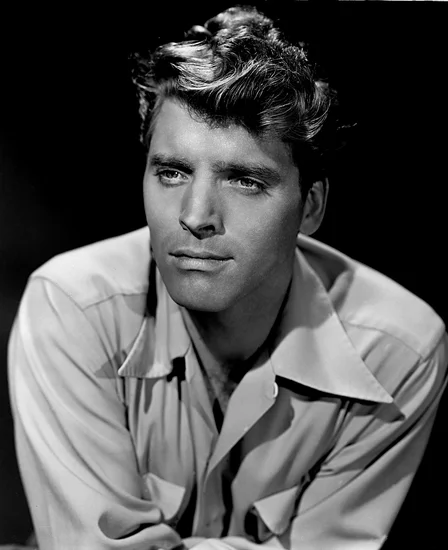
American actor Burt Lancaster entered the world in New York City, destined for Hollywood stardom. His athletic background and charismatic presence would define his acting career.
Lancaster’s performances in films like “From Here to Eternity” and “The Birdman of Alcatraz” earned critical acclaim. His versatility and intensity made him one of cinema’s most respected leading men.
1938 – Queen Sofía of Spain
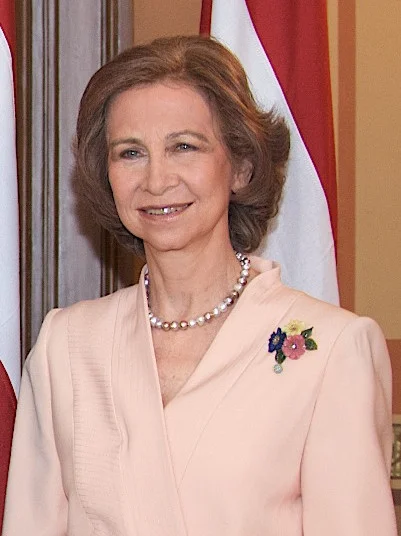
Queen Sofía of Spain was born in Athens, Greece, into the Greek royal family. Her marriage to King Juan Carlos I would make her Spain’s queen consort.
Queen Sofía’s dedication to charitable causes and cultural preservation earned widespread respect. Her gracious public service and diplomatic skills strengthened Spain’s international relationships.
1959 – Peter Mullan, Scottish Actor and Director

Scottish actor and director Peter Mullan was born in Peterhead, Scotland. His powerful performances and directorial vision would earn international recognition.
Mullan’s work in films like “My Name is Joe” and “The Magdalene Sisters” showcased his artistic range. His commitment to social justice themes resonated with audiences worldwide.
1961 – k.d. lang, Canadian Singer-Songwriter

Canadian singer-songwriter k.d. lang was born in Edmonton, Alberta. Her distinctive voice and genre-blending artistry would revolutionize country and pop music.
Lang’s albums “Ingénue” and “Shadowland” demonstrated her vocal versatility and songwriting talent. Her openness about her sexuality helped advance LGBTQ+ representation in music.
1965 – Shah Rukh Khan, Indian Film Actor

Indian film actor Shah Rukh Khan was born in New Delhi, India. His charismatic screen presence would earn him the title “King of Bollywood.”
Khan’s performances in romantic films like “Dilwale Dulhania Le Jayenge” made him a global icon. His production company and philanthropic efforts expanded his influence beyond entertainment.
1966 – David Schwimmer, American Actor
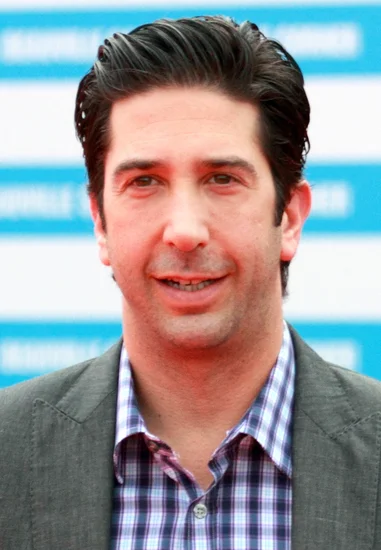
American actor David Schwimmer was born in Flushing, New York. His portrayal of Ross Geller on “Friends” would make him a household name.
Schwimmer’s theatrical background and comedic timing contributed to the show’s massive success. His directing work and advocacy for survivors of sexual assault demonstrated his commitment to social causes.
1974 – Nelly, American Rapper

American rapper Nelly was born Cornell Iral Haynes Jr. in Austin, Texas. His distinctive style would popularize Midwest hip-hop and country rap fusion.
Nelly’s albums “Country Grammar” and “Nellyville” achieved massive commercial success and critical acclaim. His crossover appeal helped expand hip-hop’s mainstream audience.
Notable Deaths on November 2
1950 – George Bernard Shaw, Irish Author and Playwright
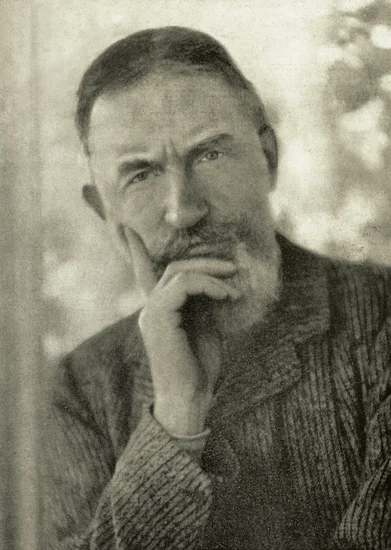
Irish author and playwright George Bernard Shaw died at age 94, leaving behind a remarkable literary legacy. His wit and social commentary earned him the Nobel Prize in Literature.
Shaw’s plays like “Pygmalion” and “Man and Superman” challenged Victorian social conventions. His intellectual brilliance and satirical genius influenced generations of writers and thinkers.
1961 – James Thurber, American Humorist and Cartoonist
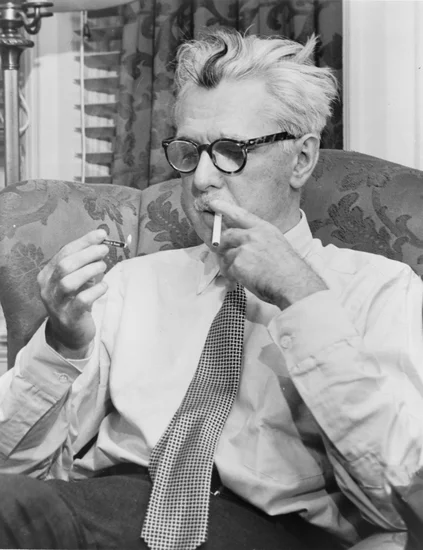
American humorist and cartoonist James Thurber died at age 66, ending a career that defined American comedy writing. His work for The New Yorker magazine showcased his unique perspective on modern life.
Thurber’s short stories and drawings captured the absurdities of everyday existence with gentle humor. His influence on American comedy and literature continues inspiring writers and artists.
1975 – Pier Paolo Pasolini, Italian Director and Screenwriter
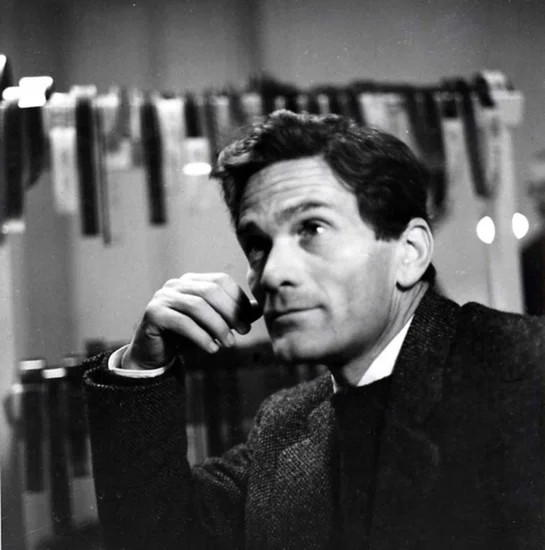
Italian director and screenwriter Pier Paolo Pasolini died tragically at age 53, cutting short a revolutionary artistic career. His films challenged conventional narratives and social norms.
Pasolini’s works like “The Gospel According to St. Matthew” and “Salo” sparked controversy and critical debate. His assassination remains one of Italy’s most mysterious and politically charged crimes.
1996 – Eva Cassidy, American Singer
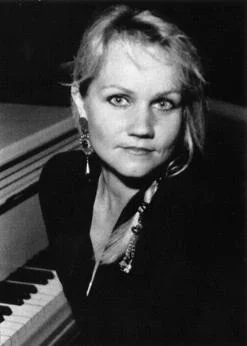
American singer Eva Cassidy died at age 33 from melanoma, just before achieving widespread recognition. Her interpretations of jazz, blues, and folk standards demonstrated remarkable vocal talent.
Cassidy’s posthumous album releases revealed her extraordinary artistic range and emotional depth. Her tragic early death robbed the music world of a uniquely gifted interpreter.
2004 – Theo van Gogh, Dutch Filmmaker
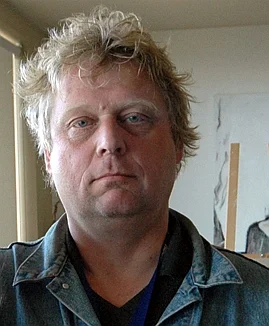
Dutch filmmaker Theo van Gogh was murdered at age 47 by an Islamic extremist in Amsterdam. His controversial documentary “Submission” had criticized the treatment of women in Islamic societies.
Van Gogh’s assassination shocked the Netherlands and sparked intense debates about free speech and religious tolerance. His death highlighted growing tensions between secular and religious communities in Europe.
Holidays and Observances on November 2
All Souls’ Day – Roman Catholic and Anglican Tradition
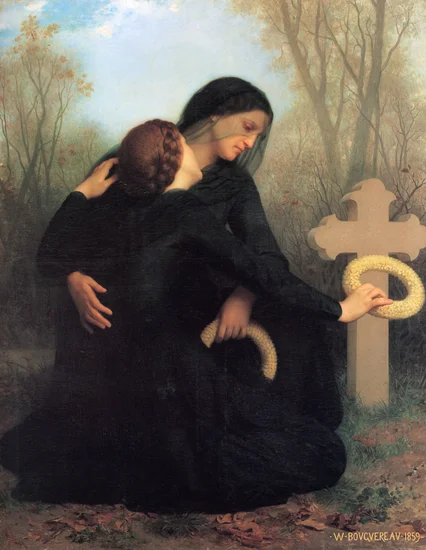
All Souls’ Day provides Roman Catholic and Anglican Christians with a solemn occasion to pray for the souls of the deceased. This sacred observance emphasizes the spiritual connection between the living and the dead.
Churches worldwide hold special masses and memorial services to honor departed loved ones. The tradition reflects Christian beliefs about eternal life and the importance of intercessory prayer.
Day of the Dead – Mexican Cultural Celebration
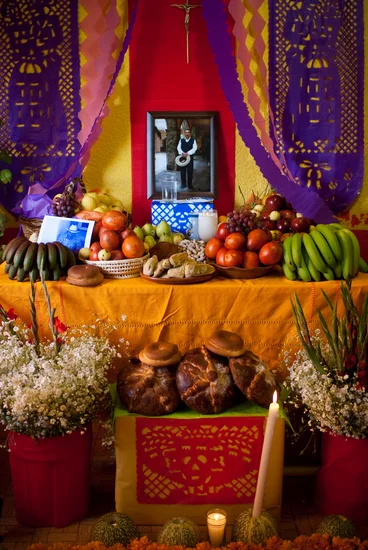
The second day of Mexico’s Day of the Dead celebration honors deceased family members with colorful festivities and remembrance rituals. Families gather at gravesites to share meals and stories with their departed loved ones.
This vibrant tradition blends indigenous Mexican customs with Catholic influences, creating a unique cultural celebration. The observance treats death as a natural part of life’s cycle rather than a somber ending.
International Day to End Impunity for Crimes Against Journalists
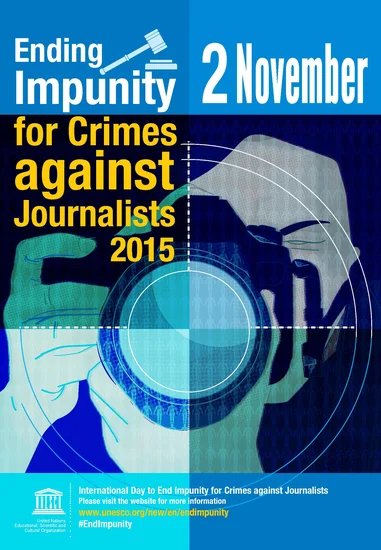
The United Nations designates this day to raise awareness about crimes committed against journalists and media workers worldwide. The observance calls for accountability and justice for attacks on press freedom.
The day highlights the dangerous conditions faced by journalists in conflict zones and authoritarian regimes. International advocacy groups use this occasion to promote press freedom and journalist safety measures.
